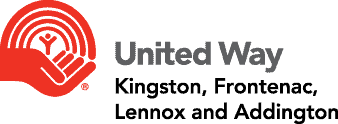211 service goes nationwide with funding from the Government of Canada
Free, confidential service helps people impacted by COVID-19 to navigate available community and government supports
Ottawa – Everyone in Canada will soon have access to 211, a free, confidential information navigation service that connects people to critical government and community-based health and social services in their community thanks to funding from the Government of Canada.
Whether a parent worried about their child’s mental health, a senior feeling isolated or anxious about getting basic necessities, a family struggling to put food on the table, or an individual looking for help to better understand what financial support is available to them, 211 is the front door to support.
211 helps people navigate the complex network of government and community programs and services quickly and easily and promises access 24 hours a day, 7 days a week, in over 150 languages. Across Canada, the service is offered through a variety of ways including phone, chat, website, and text. In all cases, 211 confidentially connects people who are seeking support to the right information and services.
As part of its COVID-19 response, the Government of Canada provided funding to United Way Centraide Canada to increase the capacity and expand access to 211 services for all Canadian residents. This will be even more valuable as we enter the second wave of the pandemic. Existing 211 services across Canada saw a dramatic increase in the number of people reaching out for help during the first wave. Overall, calls and website visits to existing 211 services increased by 31% and 45%, respectively, in the March to August timeframe.
211 has been available in British Columbia, Alberta, Saskatchewan, Ontario, Nova Scotia, Prince Edward Island, and most of Quebec. With this investment, 211 is now available in Yukon, Northwest Territories, Nunavut, Manitoba, New Brunswick, and Newfoundland and Labrador. In Quebec, services are available in the Greater Montreal area, and in the Capitale-Nationale and Chaudière-Appalaches area, with plans to roll out online and chat service across the province in November.
Quotes:
Minister of Families, Children and Social Development, Ahmed Hussen:
“The Government of Canada created the Emergency Community Support Fund to help charities and non-profit organizations adapt front-line services to address the evolving needs of Canadians throughout the pandemic. We are proud to support programs and services, like the 211 telephone line and online directory. With the ongoing pandemic, the 211 service is more important than ever, helping get information about community services to the Canadians who need it.”
Dan Clement, President and CEO, United Way Centraide Canada:
“Every year United Way Centraide, through the contribution of our donors and partners, ensures that individuals and families have access to a strong network of essential local community services. United Way Centraide created the 211 service to help everyone, especially our most vulnerable, learn about available community services and get access to the help they need when they need it. By calling 211, people are connected with a real person who will ask questions about their situation and then suggest programs or services that can help. Whether it’s through the phone, website, text or chat, 211 will be there to help people connect to the services they need for themselves, their family or friends.”
Funded by The Government of Canada
-30-
About 211
211 is Canada’s primary source of information for government and community-based health and social services. The free and confidential service can be accessed 24 hours a day, in more than 150 languages, by phone, chat, text, and web. 211 helps connect people to the right information and services, making their pathway to care and resources a guided and trusted one. Visit 211.ca for more information.
About United Way Centraide Canada
United Way Centraide Canada is the national office for a federated network of 77 local United Way Centraide members serving more than 5,000 communities across Canada, each registered as its own non-profit organization and governed by an independent volunteer-led local Board of Directors. Together we are a national network of local community builders, working to alleviate the conditions of the most vulnerable today and building stronger, more prosperous communities for all. To learn more, visit our website, follow us on Twitter, on LinkedIn, and like us on Facebook.







Leave a Reply